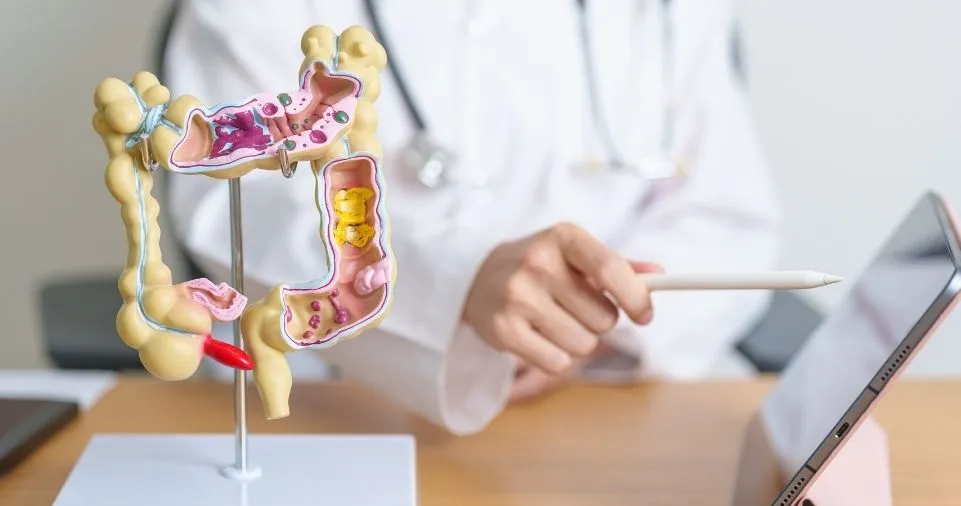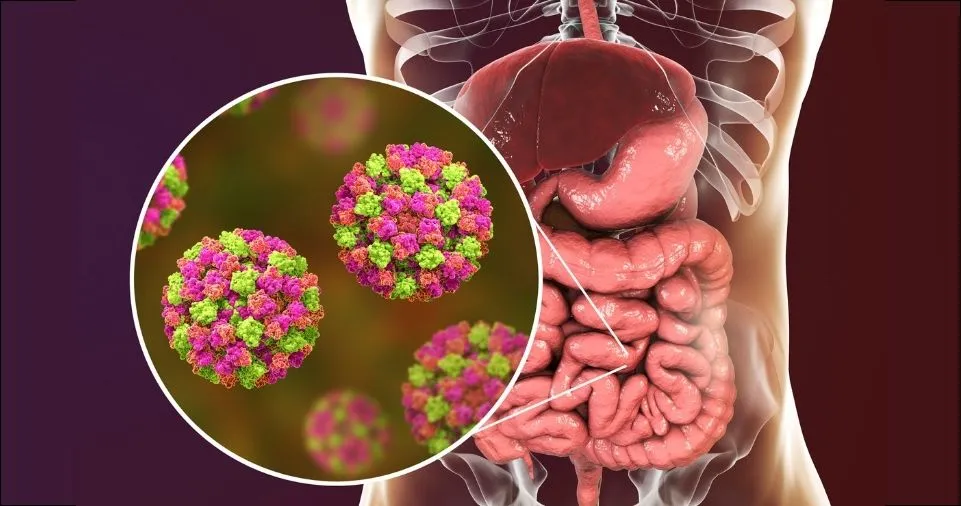Gastroenteritis, often referred to as the “stomach flu,” is a widespread condition affecting millions globally each year. It involves inflammation of the stomach and intestines, typically caused by viral, bacterial, or parasitic infections.
Recognizing the early signs of gastroenteritis is crucial for prompt management and preventing complications such as severe dehydration. Common symptoms include diarrhea, nausea, vomiting, and abdominal pain, which can disrupt daily life if not addressed swiftly.
This article focuses on the key signs of gastroenteritis, offering practical advice for managing symptoms and reducing the risk of infection.
By understanding these critical indicators, you can take timely steps to protect yourself and your loved ones from this uncomfortable and highly contagious illness.
What Is Gastroenteritis?
Gastroenteritis is the inflammation of the stomach and intestines, primarily caused by infections. It disrupts the digestive system, affecting water absorption and nutrient processing, leading to common symptoms such as diarrhea, nausea, and abdominal pain.
While commonly referred to as “stomach flu,” gastroenteritis is unrelated to influenza. It spreads through contaminated food, water, and direct contact with infected individuals.
Key Signs of Gastroenteritis
Understanding the symptoms is essential for early detection and effective management. Below are the main signs of gastroenteritis:
Diarrhea
Diarrhea is the hallmark symptom of gastroenteritis. It manifests as frequent, loose, and watery stools.
- Why It Occurs: The body tries to flush out infectious agents, leading to increased bowel movements.
- Risks: Severe diarrhea can cause dehydration, especially in children and older adults.
- When to Worry: If diarrhea persists for more than three days or includes blood, seek medical help.
| Symptom | Description |
|---|---|
| Frequency | 3 or more loose stools daily |
| Severity | Can lead to dehydration |
| Management | Drink oral rehydration solutions (ORS) |
Nausea and Vomiting
Nausea and vomiting often accompany gastroenteritis and can be distressing.
- Why It Occurs: The inflammation in the stomach lining triggers the body to expel harmful agents.
- Frequency: Vomiting episodes can range from occasional to frequent.
- Tips for Relief: Sip clear fluids like water or ginger tea, and avoid heavy, greasy foods.
| Symptom | Description |
|---|---|
| Duration | Usually lasts 1–2 days |
| Impact | Causes loss of fluids and electrolytes |
| Suggested Remedies | Clear fluids, small frequent meals |
Abdominal Pain and Cramps
Abdominal discomfort is another common symptom. It ranges from mild cramps to severe pain.
- Why It Occurs: The intestines contract to expel harmful substances, causing cramping.
- Relief: Applying a warm compress or taking antispasmodic medication can ease pain.
| Pain Location | Severity |
|---|---|
| Lower Abdomen | Mild to intense |
| Variability | Comes in waves or remains constant |
Fever
A low-grade fever is a sign that your body is fighting off the infection.
- Severity: Gastroenteritis-related fevers usually range from 100°F to 102°F.
- Monitoring: Persistent high fever could indicate a more severe condition.
Fatigue and Weakness
The combination of dehydration, fever, and nutrient loss often results in extreme tiredness.
- Rest is Key: Ensure you rest adequately to aid recovery.
- Energy Boosters: Eat bland, easily digestible foods like bananas, rice, or toast.
| Symptom | Impact |
|---|---|
| Tiredness | Reduced physical and mental energy |
| Recovery Tips | Hydration, balanced meals, and rest |
ALSO READ: WellHealth Ayurvedic Health Tips
Who Is at Risk?
Certain groups are more vulnerable to gastroenteritis:
- Children: Young children in schools or daycare settings are at higher risk due to close contact and immature immune systems.
- Older Adults: Aging weakens the immune system, making older individuals prone to complications.
- Immunocompromised Individuals: Those undergoing chemotherapy or with chronic illnesses are at higher risk of severe symptoms.
When to Seek Medical Attention

Although most cases of gastroenteritis resolve on their own, certain symptoms require immediate medical attention:
- Severe Dehydration: Look for signs like dry mouth, reduced urination, or dizziness.
- High Fever: Persistent fever above 102°F warrants medical evaluation.
- Prolonged Symptoms: Diarrhea or vomiting lasting more than three days could signal a severe infection.
- Blood in Stool or Vomit: This may indicate intestinal damage and needs urgent care.
| Critical Symptoms | Action Required |
|---|---|
| Severe Dehydration | Intravenous (IV) fluids in hospital |
| Blood in Stool | Consult a gastroenterologist |
Managing and Preventing Gastroenteritis
Stay Hydrated
Replenishing lost fluids is crucial. Drink water, ORS, or clear broths regularly. Avoid caffeinated or alcoholic beverages, as they worsen dehydration.
Follow the BRAT Diet
The BRAT diet (Bananas, Rice, Applesauce, and Toast) is easy on the stomach and helps maintain energy levels.
| Food | Benefits |
|---|---|
| Bananas | Rich in potassium, easy to digest |
| Rice | Provides energy without irritating the stomach |
Use Medications Wisely
- Antidiarrheal Drugs: Can help reduce symptoms but use only under medical supervision.
- Antiemetics: Medications like dimenhydrinate can ease nausea.
- Avoid NSAIDs: These may irritate the stomach further.
Practice Good Hygiene
Preventing the spread of gastroenteritis is as important as treating it.
- Wash hands thoroughly with soap and water.
- Disinfect common surfaces regularly.
- Avoid sharing utensils or towels with infected individuals.
Ensure Food and Water Safety
- Cook meat and eggs thoroughly.
- Use filtered or boiled water in areas with questionable water quality.
- Avoid eating raw or undercooked foods.
Probiotics: Aiding Recovery
Probiotics, found in yogurt or supplements, can restore gut flora balance disrupted by gastroenteritis. Incorporate these into your diet during recovery.
ALSO READ: WellHealthOrganic Home Remedies Tag
Conclusion
Gastroenteritis can disrupt your daily life, but recognizing its key signs early can make a significant difference. By staying hydrated, eating a gentle diet, and maintaining proper hygiene, you can recover effectively while minimizing the risk of spreading the infection.
For severe cases or persistent symptoms, consulting a healthcare provider is crucial. Taking preventive measures, such as vaccination and food safety practices, ensures you and your loved ones stay protected. Always prioritize your health, and don’t hesitate to seek help when needed.
Frequently Asked Questions About Gastroenteritis
Q: What are the primary symptoms of gastroenteritis?
A: The main symptoms include diarrhea, nausea, vomiting, abdominal pain, fatigue, and low-grade fever.
Q: How is gastroenteritis diagnosed?
A: Healthcare providers diagnose it through physical exams and, if necessary, stool or blood tests to identify the cause.
Q: How can gastroenteritis be treated?
A: Treatment focuses on hydration, rest, and eating bland foods. Medications may be prescribed for nausea or diarrhea if needed.
Q: Can gastroenteritis resolve on its own?
A: Yes, mild cases usually resolve within a few days with proper hydration and rest.
Q: What foods should I avoid during gastroenteritis?
A: Avoid spicy, fatty, and dairy-based foods. Steer clear of caffeine and alcohol to prevent further dehydration.
Q: How can I prevent gastroenteritis?
A: Practice good hygiene, wash hands frequently, disinfect surfaces, and ensure food and water safety.
Q: Who is most at risk of severe gastroenteritis?
A: Young children, older adults, and people with weakened immune systems are at higher risk of complications.
Q: When should I see a doctor for gastroenteritis?
A: Seek medical attention if you experience severe dehydration, high fever, prolonged symptoms, or blood in stool or vomit.
Q: Can probiotics help in gastroenteritis recovery?
A: Yes, probiotics can restore gut health and speed up recovery by balancing gut bacteria.
Q: Is gastroenteritis contagious?
A: Yes, it spreads easily through contact with contaminated surfaces, food, water, or infected individuals.
Q: How can I stay hydrated during gastroenteritis?
A: Drink water, oral rehydration solutions (ORS), or clear broths in small sips to replenish lost fluids.
Q: Is there a vaccine for gastroenteritis?
A: Yes, rotavirus vaccines are available and can protect young children from severe viral gastroenteritis.
We at well-healthorganic.com shares helpful blogs about natural health, Ayurveda, and fitness. We provide easy tips, home remedies, and simple advice to help you live a healthy and balanced life. Explore ways to stay fit and enjoy natural living with us.



